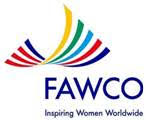
Denise began by presenting the author.
Celeste Ng was born in Pittsburg in 1980. Her parents were immigrants from Hong Kong. When Ng was 10, her family moved to Shaker Heights, Ohio, which was the setting for her second book, the best-selling Little Fires Everywhere. Ng studied English at Harvard and went on to get her MFA from U. Michigan. Like Margaret Miu, the poet in Our Missing Hearts, Ng’s husband is Caucasian, and like Miu, she lives in Cambridge, Mass., so the dorm and the library there are places she knows well. One of Ng’s favourite books is The God of Small Things, which we read recently in the book club.
This is her third novel. She began with the idea of writing about a mother who’s an artist, and whose son sees art as a rival for his mother’s affection. Then after th 2016 election, the rise of far right, followed by Covid, America was the site of increased xenophobia targeting Chinese Americans. Ng says about the novel’s change of orientation: “I am turning up the volume on our world.”
One of her major concerns in the book is that of maintaining hope and raising a child in a world that is falling apart. The plot features some of the methods of authoritarian governments such as controlling the population by going after the children of dissidents, or banning books and repressing demonstrations. A recurring theme in the book is that of storytelling, whether oral or written. How do stories impact life? Why is the narrative focalised through eyes of the child who is 12 years old? What emerged from the discussion was that since the character Bird is placed on the cusp of adulthood, readers follow him as he starts to see more things, and become more aware.
Denise found Steven King’s comments on the novel interesting. King points out that a dystopia like the USA of the novel is an imaginary place where everything is as bad as possible. The fact that the novel renders it believable makes it more upsetting. The book follows the classic pattern of a journey from innocence to experience. Bird doesn’t demonstrate much bitterness toward the mother who abandoned him. Because the storytelling is calm and serene the explosions of violence are all the more shocking.
We discussed the title of the novel, which is taken from a line in one the fictiona poet’s poems. Margaret had no intention of achieving notoriety but her words are taken up to become a rallying cry, like other quotations such as George Floyd’s “I cant breathe”. Katharine felt that the novel was good, even though she doesn’t like dystopian novels. It was timely given the recent election. She felt Margaret made a hard choice to abandon her son, but understood that he would have been taken anyway. Wendy H pointed out that a lot of the action takes place in libraries. The novel is a kind of love letter to libraries and librarians. Sealia found this really topical: libraries are important, and they are currently under threat of closing. The librarians are key in the network of people passing on information about missing children. Libraries are safe and calm places where Bird can make a connection and pursue his quest. The same goes for his friend Sadie. Authoritarian regimes curtail the public’s ability to access information. Memory and oral transmission become important.
We discussed how we no longer own material sources of information, we rent access to it and can’t necessarily retrieve the information. Sealia talked about the false note in the national anthem that was rapidly corrected in official reports. It’s only because someone saved the live version that we have a trace of the mistake. In authoritarian regimes the records are systematically changed. There’s a celebration in the book of material forms of knowledge: the New York public library with its sculpted lions or the card catalog in the Harvard library.
The only way Bird knows about the Crisis and the disappearance of children is from his mother’s oral account when he finds her. The official line is different. Ther problem of knowing who to believe. Whoever wins tells the official story. Sadie mother is journalist who is punished because of her desire to discover the truth about the missing children.
Denise asked that we contrast what librarians are doing with performance of protest art or Margaret’s last act with the bottle caps that conceal audio transmitters. The librarians tend to be dismissive of the action of the artists. Which is more effective Sealia said that its typical of resistance movements to dispute which is the better way. Beth argued that one does what one can. Small gestures add up. Each small gesture is a great risk.
Pat admitted that she was not as enthusiastic as others about the novel. It has two story lines, one personal and one political and she thought that the latter was not adequately developed. Beth agreed, adding that she found the writing self-indulgent and the story line weak. She also felt that there was not enough hope. Mariannick said she thought she was reading Atwood. We agreed that the novel is fuzzy about certain elements. What is the CRISIS for example? Clearly it’s an economic crisis, blamed on China, but we are not given any details about what caused it. Sealia felt that it’s good that it’s vague because It doesn’t matter. It’s all the more powerful because the crisis could be anything. There’s a similar vagueness about the oppressive state in 1984. That makes it more frightening.
Denise told us that Steven King said two things are absent and she wondered whether we noticed what they were. Sealia pointed out the lack of reference to social media. We agreed and understood that the use of social media is too dangerous in an authoritarian climate. It can be traced. Bird is not allowed a telephone for that reason. However, resistance is much smaller if it’s analog. Without social media the movement cannot spread very quickly.
There was a question about Ethan’s being hired as a linguist at Harvard. Is it credible? After the Crisis the familiar structures of university hiring may have broken down. Wendy N said it was not unbelievable and in her experience, the more élite the university, the more nepotism works. State university hiring is more controlled. Also the élite is protected in the novel’s USA. In fact, Domi uses the smokescreen of her privilege to help the resistance. But it only works if she pretends to be on the side of the oppressors. Domi provides Margaret with the technology and the safe house. The narrative explains that Margaret reads books on tech in the library. Everyone does what they can.
Another missing element is quotation marks for speech. Ng says she doesn’t like to use free indirect speech but that she needed it in this book where there’s a blur between inside and outside. (Some readers found it effective; others objected The other obvious absence is Covid. Still, it’s there as a kind of watermark since the experience of lockdown is in the book. Also the blaming of China for Covid.
We discussed the meaning of the title for the book. For Sealia, you take the meaning you want. Interpretation is a relation between text and reader.
We also discussed the ending—the choice of Bird to go and seek out his mother and her works. Is this anticlimactic? Sealia finds a little bit of hope there. It will be one o the small things people do. Also it suggests the impact of the stories Margaret collects and broadcasts. Bird says he will find someone who could recite back al the things his mother said about him.
Maggie felt it was safer to limit his quest to that. He wants to understand. He will go and find people who resist. He has a personal reason but he can build a networ from there. Was the resistance network made of only those who had lost children? Not really, the librarians and Domi and the student protesters are also part of this underground network.
The meeting ended with Sealia recommending the author’s notes at the end of the book that draw parallels with history and give suggestions for further reading.
Finally we voted on whether to hold the next meeting at Le Bookshop, so as to support a community business. It opens at 11am so we would have to start later. The majority voted to meet on December 13th at Le Bookshop.
Report written by Wendy 20 November 2024.

